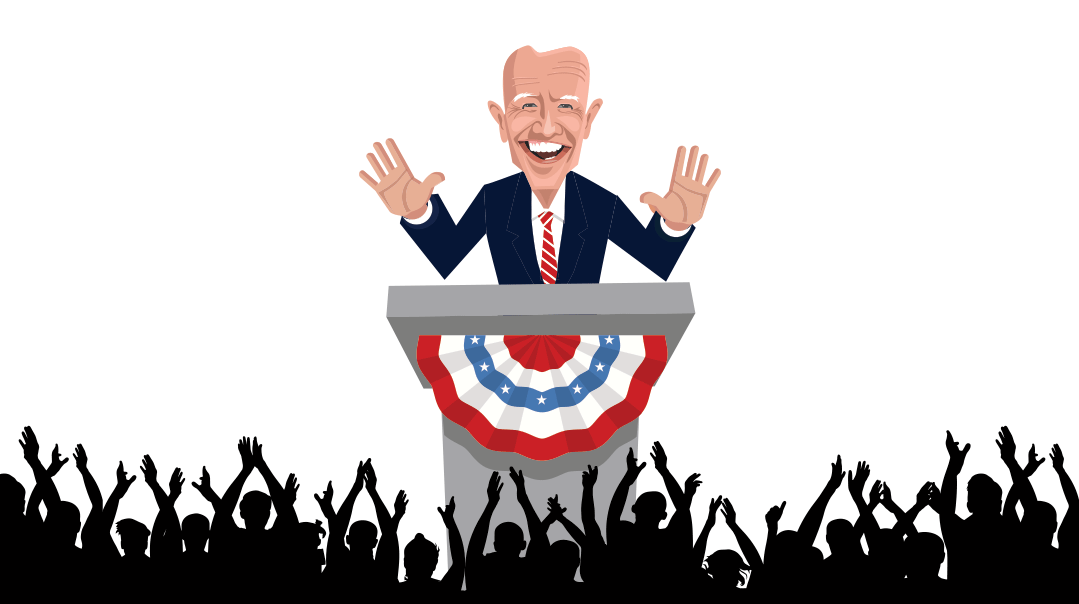“Bloomberg’s Stumble, Biden’s Surge: 5 Takeaways for Each”

Mike's fall and Joe's rise, what the numbers tell us

Before the New Hampshire primary, I thought Mike Bloomberg would be the Democratic nominee. His well-crafted ads, the unimpressive other contenders, the sense of everyone else clawing at each other’s throats while Mike remained calmly above the fray... Last week he dropped out without winning a single contest. (Except American Samoa.) Maybe the former mayor should have taken these five factors into account.
- Money doesn’t guarantee success. Even if you splash $500 million in ads, it ultimately matters more who you are than how you deliver your message.
- Elitism doesn’t win votes in the South and the Midwest. When you have $60 billion in the bank, you tend to look down on others, to think you’re better. That was the attitude Bloomberg projected.
- Lack of charisma is a big drawback. Bloomberg has employed tens of thousands of people, but he couldn’t energize a crowd. His relatively few campaign rallies had fairly modest crowd sizes. It wasn’t a grassroots movement sweeping America.
- Debate performances matter. He couldn’t deliver the simplest points compellingly and energetically. When everyone was talking about gun control, he barely mentioned that he had singlehandedly created an organization to advocate for this very cause. It was obvious he hadn’t prepared too well. This also showed when Elizabeth Warren savaged him repeatedly about the work environment in his companies. He had nothing to say for himself, even though any political consultant could have seen it coming from a mile off.
- Don’t expect them to hand it to you. In summary, it seems Bloomberg didn’t enter the race to fight for every vote, but just to be there when the other moderates stepped aside for him. When that didn’t happen, he threw in the towel.
Finding new life after Super Tuesday, Joe Biden now holds the inside track to the Democratic nomination. How did the former vice president get to this place, after running such a lackluster campaign for months?
- He’s the last moderate standing. Biden’s seeming decline was Bloomberg’s whole rationale for running. Bloomberg would become the last moderate alternative to Sanders. But in the debate before the South Carolina primary, Biden looked more vital and energetic than ever. And after Warren demolished Bloomberg, moderates had only one candidate to place their hope in.
- The Democratic establishment is consolidating. Pete Buttigieg’s and Amy Klobuchar’s decisions to drop out before Super Tuesday mean that socialist Bernie Sanders no longer faces a splintered opposition and a contested July convention. Instead, it’s a two-horse race in early March.
- White suburban Dems went for Joe. The most telling number in Biden’s sweep was his victory in places like northern Virginia’s white suburbs, where he won over 50% of the vote. The 2018 midterm elections saw white suburban women favoring Democrats. Biden’s win here shows that Dems need to hold this line if they want to win the White House.
- Clyburn is a kingmaker. Rep. Jim Clyburn (D-SC), the most senior African American in Congress, endorsed Joe Biden, and that tilted the balance in South Carolina. Before that, Biden was running even with Sanders in the state. Afterward, Biden swept late deciders and won in a walkover.
- Sanders has limited appeal to blacks. It’s one thing to win in Iowa and New Hampshire, where the vast majority of the electorate is white. But if Democrats want to win in November, they need someone who appeals to the African American base — and Biden has proven he can do it.
(Originally featured in Mishpacha, Issue 802)
Oops! We could not locate your form.













